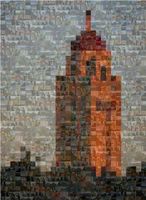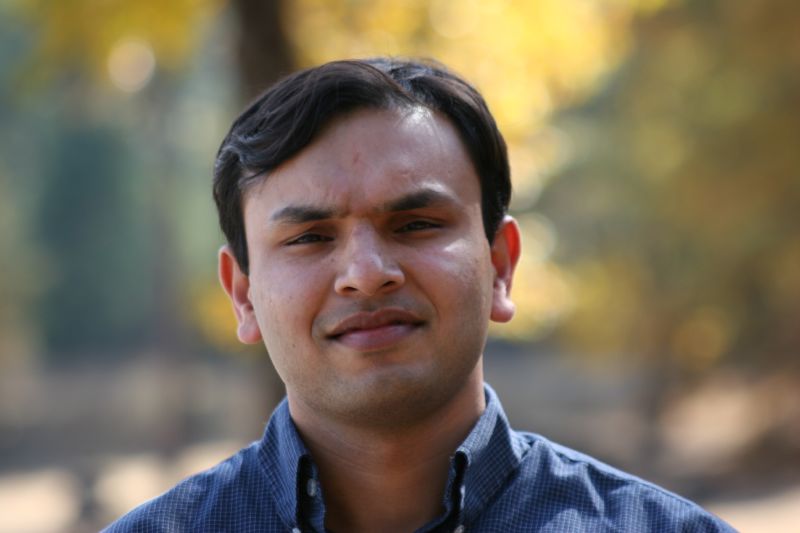Sunday, August 28, 2005
Playbook of a different kind
Right now, I am in school at Stanford. But, I am sure I will require the tips from this book Marketing Playbook: VC Pitch Tips soon. I am waiting impatiently to achieve my ambition - start my own company..... Let's see how long I have to wait for this !
Stay Hungry. Stay Foolish
1. Believe in connecting the dots
... you can't connect the dots looking forward; you can only connect them looking backwards. So you have to trust that the dots will somehow connect in your future. You have to trust in something — your gut, destiny, life, karma, whatever. This approach has never let me down, and it has made all the difference in my life.
2. You've got to find what you love. Don't settle
... Sometimes life hits you in the head with a brick. Don't lose faith. I'm convinced that the only thing that kept me going was that I loved what I did. You've got to find what you love. And that is as true for your work as it is for your lovers. Your work is going to fill a large part of your life, and the only way to be truly satisfied is to do what you believe is great work. And the only way to do great work is to love what you do. If you haven't found it yet, keep looking. Don't settle. As with all matters of the heart, you'll know when you find it. And, like any great relationship, it just gets better and better as the years roll on. So keep looking until you find it. Don't settle.
3. Stay Hungry. Stay Foolish.
... Stewart and his team put out several issues of The Whole Earth Catalog, and then when it had run its course, they put out a final issue. It was the mid-1970s, and I was your age. On the back cover of their final issue was a photograph of an early morning country road, the kind you might find yourself hitchhiking on if you were so adventurous. Beneath it were the words: "Stay Hungry. Stay Foolish." It was their farewell message as they signed off. Stay Hungry. Stay Foolish. And I have always wished that for myself. And now, as you graduate to begin anew, I wish that for you.
Stay Hungry. Stay Foolish.
* Complete Text: 'Commencement Speech 2005'
* Video of the speech is available at this link
* Audio is available here
Wednesday, August 17, 2005
Tuesday, August 16, 2005
Hoover Tower at Stanford
Hoover Tower serves as a landmark of Stanford to faculty, students, alumni and the local community. Completed in 1941 to celebrate the university's 50th anniversary, the 285-foot structure offers superb views of Stanford and the Bay Area from its observation deck. Atop Hoover Tower is a carillon of 48 bells cast in Belgium. The largest bell is inscribed, "For Peace Alone Do I Ring."
Monday, August 01, 2005
Knowing What You Don’t Know
Every entrepreneur is a first-time entrepreneur once.
How do VCs, then, evaluate first-time entrepreneurs? How can they garner the confidence to place both their money and time in someone who hasn’t started a company before? Of course, investors look at other past experiences as both a signal and substitute for an entrepreneurial endeavor.
A friend of mine at another firm told me that they also explicitly look for one intangible quality. For every entrepreneur who comes in to pitch they ask the question, “Does he know what he doesn’t know?”
Yes, entrepreneurs know the information that they know. It is this experience and comprehension that guides them, and gives them inspiration. But what about the information that they don’t know? Are they aware of their lack of knowledge in a certain area? Or are they (blissfully) ignorant of it?
Venture capitalists want to be assured that their money is in knowledgeable hands. But they also want to know that those hands will look to others when they aren’t fully capable. It is much better to admit that one doesn’t know something than to act blindly without it. And it takes a special person to even realize and perceive when an area of understanding is lacking.
You know what you know, but do you know what you don’t know?Relating to Anomalies
Here's an entry submitted by John O'Leary of Tom Peters Company.
Thomas Kuhn, in his 1962 classic, The Structure of Scientific Revolutions, speaks of anomalies as "violations of expectation" that can escalate to "crises," precipitating violence to our "paradigms." When we can't make anomalies conform to our current mindset, they can lead us to the "reconstruction of prior theory," an intrinsically revolutionary process." Hmmm. Sounds EXACTLY like what's needed in business in these crazy times. So how do you respond to data that don't fit your theories—perhaps the feedback you're getting from the market, your customers, your organization? How do you—and your company's leaders—deal with anomalies?
Gmaps hack shows effects of high-yeild explosive detonations
Here's a haunting Gmaps hack: "The High Yeild Detonation Effects simulator maps overpressure radii generated by a ground-level detonation; these radii are an indicator of structural damage to buildings. No other effects, such as thermal damage or fallout levels, are included in this tool. Note that the displayed rings are "idealized"; that is, no account is taken of terrain, urban density, ground type, weather conditions, and so on."
Link



